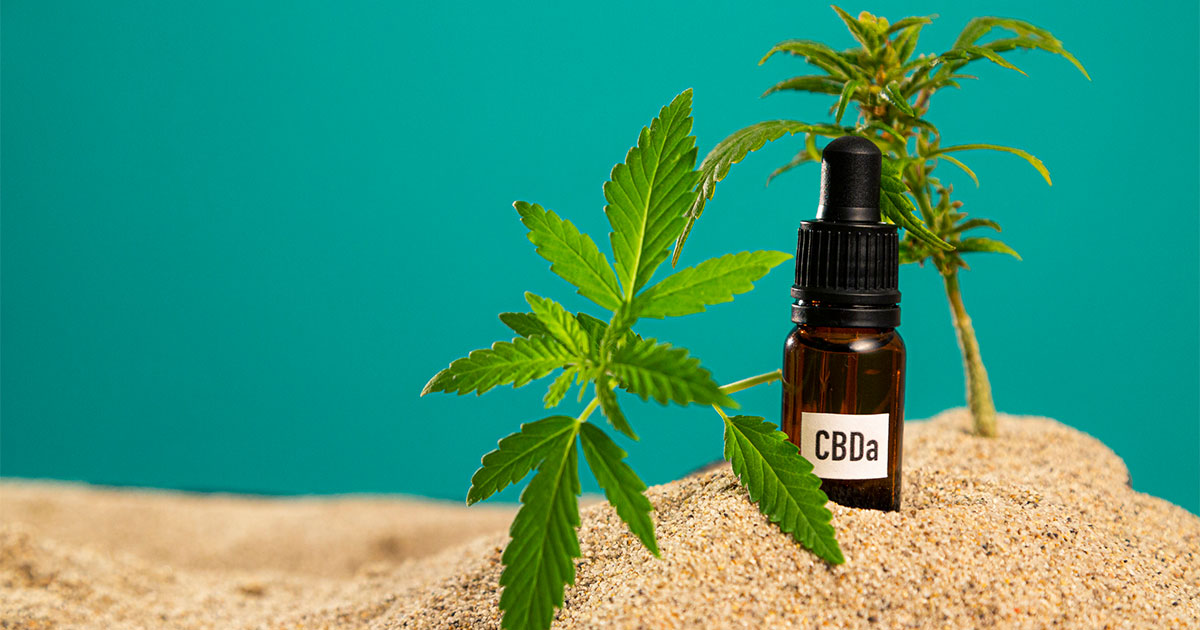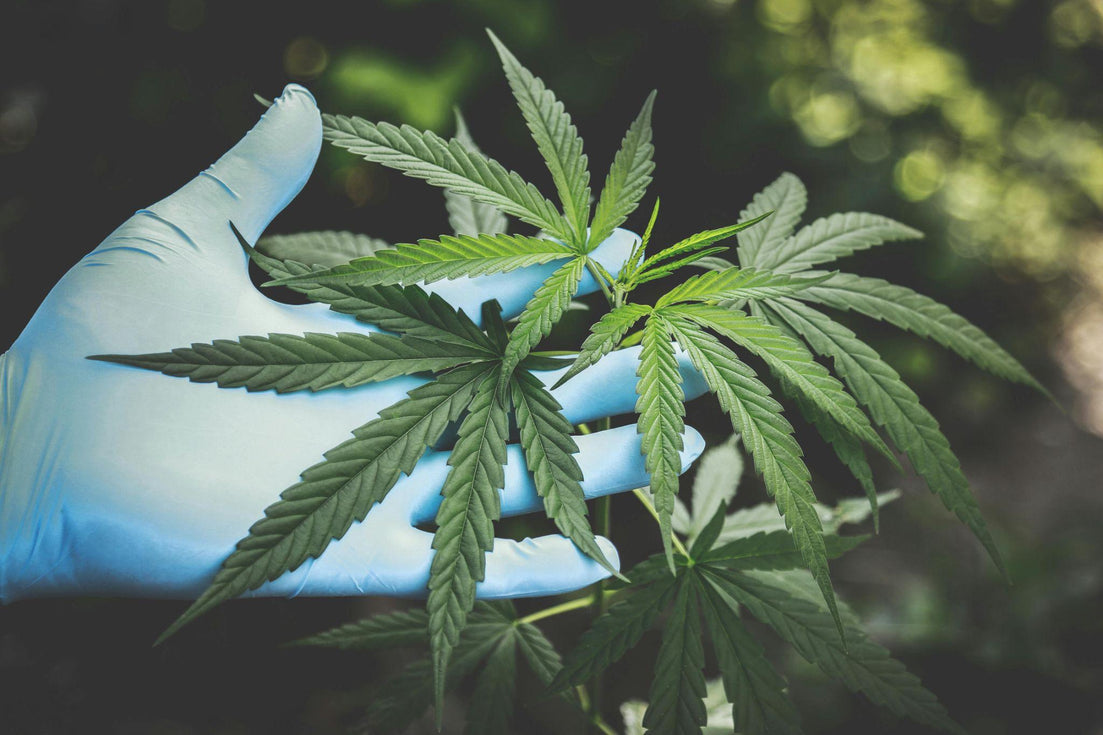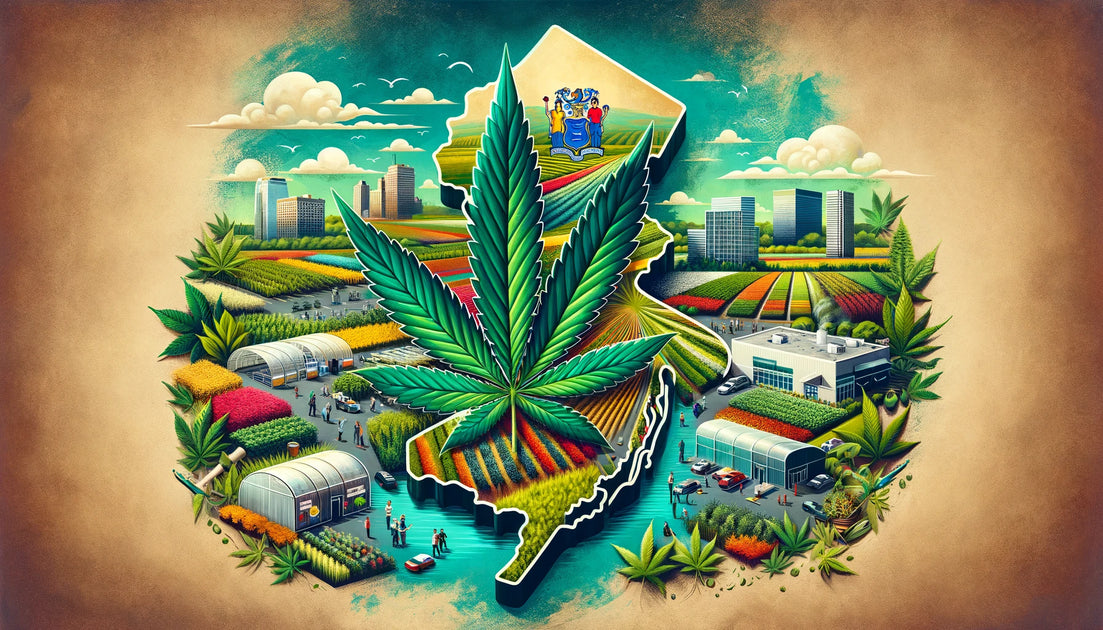Your cart is currently empty.

CBD and its various forms have become increasingly popular for managing symptoms such as pain, anxiety, and insomnia. But what about CBDA? Is cbda good for treating these conditions? In this blog post, we'll examine the potential benefits and safety considerations of CBDA to help you decide if it is a suitable treatment for your physical and mental health concerns, as well as its legal status in your area. We'll also explore if using CBDA is legal in your area. So read on to learn more about how cbda good for addressing physical and mental health concerns.
Table of Contents:
- What is CBDA?
- Benefits of CBDA
- Uses of CBDA
- Pain Management with CBDA:
- Anxiety Relief with CBDA:
- Safety and Side Effects of Using CBDA
- Legal Status of Using CBDA
- Conclusion
What is CBDA?
CBDA, the precursor to CBD and not known for getting you high like THC does, is a cannabinoid found in hemp and cannabis plants. CBDA is being used increasingly as an alternative treatment for a range of issues, such as pain, anxiety, insomnia and more. CBDA differs from CBD in that it does not get you high like THC does. Instead, its effects are more subtle but still beneficial for many people.
CBDA, or Cannabidiolic Acid, is a compound found in hemp and cannabis plants that interacts with the body's endocannabinoid system to regulate functions such as mood, appetite, sleep cycles, memory recall and immune response. The ECS helps regulate functions such as mood, appetite, sleep cycles, memory recall and immune response. When consumed orally or applied topically to the skin CBDA interacts with this system to provide relief from various symptoms including inflammation-related pain and anxiety-induced insomnia.
Raw, unheated forms of CBDA can be more easily absorbed by the digestive tract without needing to undergo additional heat processing first, granting users quicker access to potential therapeutic benefits associated with this cannabinoid compared to traditional methods like smoking flower buds or using edibles made from concentrated oils containing higher levels of THC than those found naturally occurring within plant matter itself. Inhibiting enzymes responsible for breaking down cannabinoids such as THC also prevents them from having any psychoactive effect on users when taken orally or used topically on the skin - a major difference between CBD and CBDA.
CBDA, a cannabinoid that has been gaining increasing notice for its potential therapeutic applications, is becoming more widely known. It's important to understand the differences between CBDA and CBD, as well as how it works in order to take advantage of these possible health benefits. Next, let's explore the potential benefits of CBDA for medicinal purposes.
Key Takeaway: CBDA, a cannabinoid found in hemp and cannabis plants, has recently been gaining traction as an alternative treatment for various conditions like pain, anxiety and insomnia due to its lack of psychoactive effects when taken orally or applied topically. It differs from CBD by not having any psychoactive effects when taken orally or applied topically to the skin due to it inhibiting enzymes responsible for breaking down cannabinoids like THC.
Benefits of CBDA
CBDA, or cannabidiolic acid, is a naturally occurring cannabinoid found in the hemp plant. CBDA is closely related to CBD, yet possesses unique characteristics that make it a desirable natural remedy for ailments like pain, anxiety and insomnia. CBDA offers many potential benefits for those looking for natural alternatives for managing symptoms such as pain, anxiety and insomnia. Let’s take a look at what CBDA can do and how it works.
What does CBDA help with? CBDA has been studied extensively and there are promising results showing its ability to reduce inflammation, fight cancer cells and relieve pain. Research has indicated that CBDA could be advantageous in treating nausea related to chemotherapy and diminishing seizures for those enduring epilepsy.
How does CBDA work? CBDA binds to endocannabinoid receptors (ECRs) located throughout the body, which are responsible for regulating a variety of bodily functions. These ECRs regulate various functions within the body including mood regulation, memory formation and appetite control among others. By interacting with these ECRs through binding or blocking certain signals sent by them, compounds like CBDA can affect their functioning which leads to positive changes in health conditions like pain relief or reduced inflammation etc
CBDA may offer multiple advantages that could be valuable for those seeking relief from ailments like pain, nervousness, and sleep deprivation. Next we will look at the various uses of CBDA in more detail.
Key Takeaway: CBDA is a cannabinoid with potential health benefits, such as pain relief and anti-inflammatory properties. CBDA interacts with ECRs, which are receptors that manage a range of bodily activities like emotional state regulation, memory creation and hunger control.
Uses of CBDA
Pain Management with CBDA:
Pain is a common issue that affects many people and can be caused by numerous factors. CBDA has been found to be effective in helping manage pain due to its anti-inflammatory properties. Studies have indicated that CBD could be advantageous in diminishing the inflammation related to constant diseases, for example, rheumatoid arthritis, fibromyalgia and headaches. Studies have demonstrated that regular utilization of CBD can diminish agony seriousness and improve rest quality.
Anxiety Relief with CBDA:
Anxiety is a mental health disorder that can cause significant distress in individuals who suffer from it. Research suggests that CBD can help alleviate symptoms of anxiety by reducing stress levels and improving moods. By activating serotonin receptors, CBD helps to modulate emotions such as fear, worry and happiness while also increasing dopamine production for further relief from anxiousness or panic attacks. Additionally, CBD has been found to increase dopamine production which further helps relieve feelings of anxiousness or panic attacks.
Sleep disorder where it is hard to nod off or remain asleep through the night, known as insomnia, is a common problem. CBD has been suggested to help improve insomnia symptoms, as it can relax the body and mind while promoting melatonin production for better regulation of circadian rhythms. Additionally, it increases melatonin production which helps regulate your circadian rhythm allowing you to fall asleep more easily at night without feeling groggy during the day time hours afterwards
Overall, CBDA has many potential benefits for individuals looking to manage pain, anxiety and insomnia. Nevertheless, prior to starting a CBDA routine, it is critical to be mindful of the potential safety concerns and adverse reactions that may arise.
Safety and Side Effects of Using CBDA
CBDA, a non-psychoactive compound found in the cannabis plant, is becoming increasingly popular as an alternative to conventional treatments for issues such as pain, anxiety and insomnia; however it's important to be aware of its potential side effects and interactions with other medications. However, before using CBDA or any other cannabis product, it’s important to understand its potential side effects and interactions with other medications.
When used properly, CBDA is generally considered safe. It has few known side effects compared to many prescription drugs. The most common side effect reported by users of CBDA products is drowsiness or fatigue. Some people also experience dry mouth or mild stomach upset when taking large doses of CBDA. In some cases, these reactions may pass with time and dosage can be modified to alleviate them.
It’s important to note that some medications may interact with CBD compounds like CBDA in unpredictable ways due to their similarities in chemical structure. This means that combining certain medications with CBD could lead to dangerous drug interactions which could have serious health consequences including liver damage or even death in extreme cases. Therefore, it’s best practice for individuals taking medication on a regular basis to consult their doctor before adding any kind of cannabinoid supplement such as CBDA into their routine regimen regardless of how “natural” they might seem at first glance
In addition, pregnant women should avoid using any type of cannabinoid products since there isn't enough research available yet on the safety implications for unborn babies exposed during pregnancy and lactation periods alike. However, more studies are being conducted currently which will further develop our understanding about these substances overall.
Therefore, it is important to be aware of the potential side effects and interactions that may occur when using CBDA in order to make an informed decision about whether or not this natural alternative is right for you. Consequently, familiarizing yourself with the legal regulations of CBD items in your locale can assist you in making a knowledgeable decision regarding whether this natural choice is suitable for you.
Key Takeaway: CBDA is generally considered safe and has few known side effects, however it can interact with other medications in unpredictable ways so consulting a doctor before use is recommended. Pregnant women should steer clear of cannabinoid products until further studies have been conducted on the potential effects for fetuses.
Legal Status of Using CBDA
The legal status of using CBDA is a complex topic that varies depending on the country or region. In the US, CBD products containing less than 0.3% THC by dry weight are legally permissible for sale and use. In the US, CBDA-containing products are generally accepted for sale and use; however, there may be local regulations to consider. It's important to check your local laws before purchasing any CBD product, including those with CBDA.
Internationally, laws regarding CBD vary widely from country to country. Some countries have legalized its use while others still consider it an illegal substance. In Europe, access to cannabis-derived products such as CBDA oil or other forms of cannabinoid extracts like Delta 8 and Delta 9 THCs is generally permissible provided they contain no more than 0.2% THC. Additionally, many European countries also allow for the sale of hemp-derived CBD products without requiring a prescription or special license if they meet specific requirements set forth by their respective governments.
Conclusion
In conclusion, CBDA is a beneficial compound with potential to help manage symptoms such as pain, anxiety and insomnia. Though not yet evaluated by the FDA, research indicates that CBDA may be a beneficial natural alternative for managing certain symptoms. It seems that CBDA may be beneficial for some ailments, yet further research is required to assess its efficacy and safety.
Take advantage of the potential benefits of CBD, Delta 8 and Delta 9 by exploring our comprehensive selection of products. With us, you can find reliable solutions to your health needs that are backed by scientific research.



